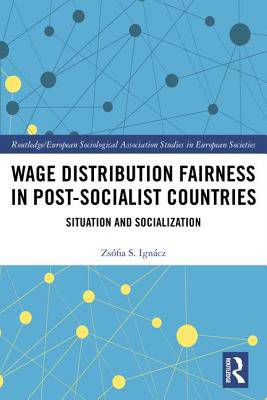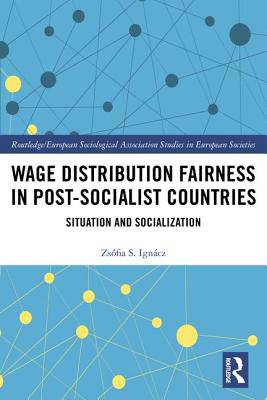
- Retrait gratuit dans votre magasin Club
- 7.000.000 titres dans notre catalogue
- Payer en toute sécurité
- Toujours un magasin près de chez vous
- Retrait gratuit dans votre magasin Club
- 7.000.0000 titres dans notre catalogue
- Payer en toute sécurité
- Toujours un magasin près de chez vous
Description
Fairness of wage distribution - or the perception of such - is a phenomenon crucial for the stability of new democracies. While theories exist about how change of the political system trickles down to the attitudinal level, the systematic analysis of the effect of economic transition on public attitudes has been neglected to a large extent.
Wage Distribution Fairness in Post-Socialist Countries proposes a conceptual framework to measure the fairness of wage distribution. Indeed, looking particularly at wage distribution fairness in three post-socialist societies (Hungary, East Germany, Czech Republic) since the transition in 1989, this challenging monograph also aims to understand if, and to what extent, the experience of a socialist regime motivates individuals to consider wage distribution as fair.
Contributing to our understanding of the relevance of socialization and other situational factors influencing economic legitimacy, Wage Distribution Fairness in Post-Socialist Countries will appeal to undergraduate and postgraduate students, as well as postdoctoral researchers, interested in fields including: Sociology, Eastern European Studies and Political Economics.
Spécifications
Parties prenantes
- Auteur(s) :
- Editeur:
Contenu
- Nombre de pages :
- 286
- Langue:
- Anglais
- Collection :
Caractéristiques
- EAN:
- 9781138222663
- Date de parution :
- 31-10-17
- Format:
- Livre relié
- Format numérique:
- Genaaid
- Dimensions :
- 156 mm x 233 mm
- Poids :
- 689 g

Les avis
Nous publions uniquement les avis qui respectent les conditions requises. Consultez nos conditions pour les avis.






